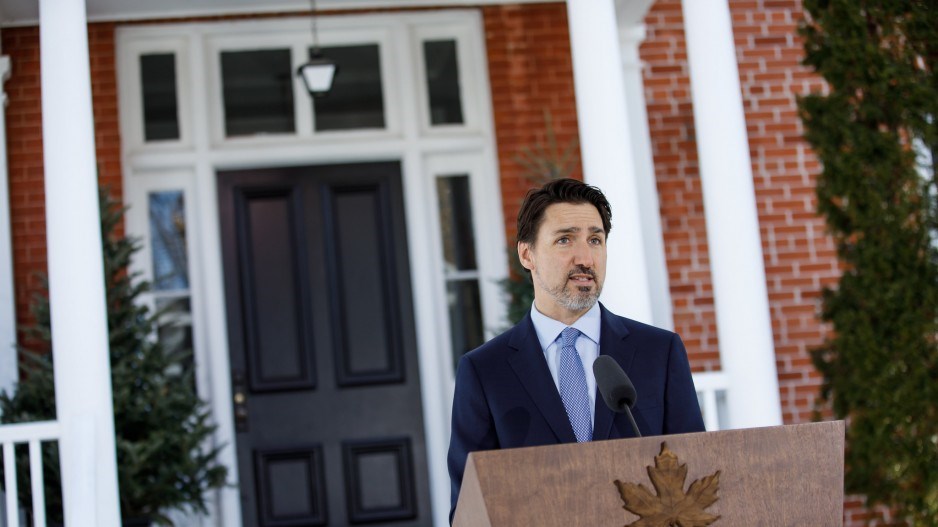The federal government is taking a cue from B.C. and requiring all travellers entering its borders to have a quarantine plan in place.
Prime Minister Justin Trudeau said Tuesday (April 14) any asymptomatic travellers who cannot present a plan upon entering the country will be required to quarantine inside a hotel.
The plan goes into effect at midnight.
“The order that goes into effect tonight is a strengthening of the Quarantine Act orders,” Trudeau said during his daily briefing outside his home in Ottawa.
“If it is inadequate, they will be required to quarantine at a hotel.”
Trudeau said the government now has the authority to require travellers to self-isolate for two weeks.
He pointed to examples of “inadequate” plans as people coming from outside the country who may find themselves in close contact with the elderly upon re-entering Canada, or else Canadians who’ve been living outside the country for years and may not have a home in which to live.
B.C. introduced its own plan April 8, ordering those returning to B.C. to present officials with a plan upon arrival.
Those who do not present a plan will be sent to a hotel quarantine site.
Meanwhile, Trudeau also confirmed that the country now has 1.1 million N95 medical masks in its possession and ready to ship to the provinces and territory.
The updated figure comes following the weekend arrival of what the prime minister described as “four planes’ worth” of masks in addition to 820,000 masks that went out across the country last week.
Additional gowns and protective gloves are also expected to be shipped out to medical facilities in the coming days, while Spartan Bioscience Inc. is expected to produce tens of thousands of testing kits per month.
“Demand for these supplies is going up and we’re going to make sure Canada can keep up,” Trudeau said.
The prime minister was also pressed on how long it would take before Canada could once again unfurl its economy following weeks of paralysis.
Trudeau reiterated earlier statements that the country will have to remain vigilant about current measures until a vaccine is available.
“We will have to do it in phases,” he said.
“We are having ongoing discussions with the provinces as this point. We recognize that different regions of the country are in different places along the evolution of their COVID-19 curve. We’re going to make sure that we try to stay co-ordinated as best as possible. But those discussions are ongoing about how we’re going to reopen the economy. It’s just that it’s going to be a while still.”
The prime minister said the country will be deferring to advice from experts and scientists regarding when it would be safe to ease up on measures that have seen businesses across the country slow operations or shutter temporarily.
Trudeau added some sectors would be better positioned to return to work sooner than others.
Meanwhile, he said travel restrictions will last for the weeks to come while the federal government engages in ongoing discussions with the U.S.
Ottawa also revealed Tuesday it’s allocating nearly $130 million to help the country’s northern communities with food supply and medical facilities.
Of that sum, just over $76 million has been earmarked for the territories’ health-care systems.
Other funding is going towards working with air carriers to bring essential products to the north.
The federal government is also committing an additional $20 million in funding to the Canadian Food Inspection Agency to strengthen food inspections and keep the country’s food supply safe.




